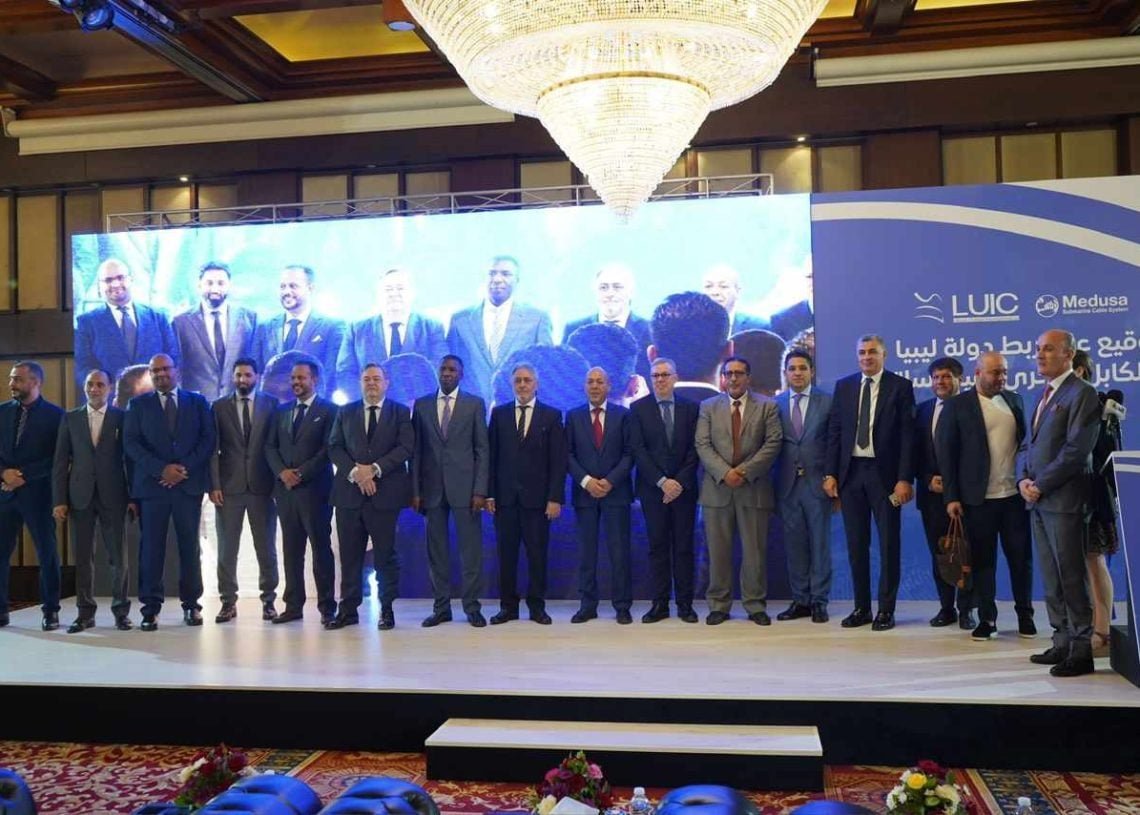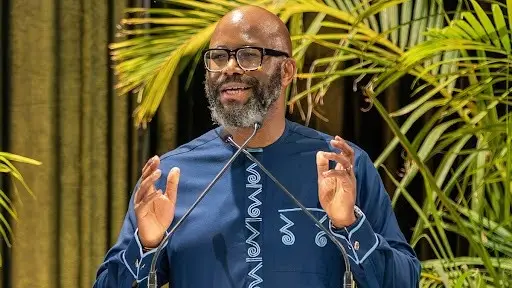The Libyan United International Company (LUIC), a newly established private sector entity specializing in communications, recently inked a contract to integrate Libya into the Medusa submarine cable project. This ambitious project interconnects Libya with various Mediterranean countries, including Italy, Spain, Portugal, Morocco, Tunisia, Greece, Egypt, and Cyprus.
The LUIC represents a consortium of Libyan private sector firms operating in the communications industry. The signing ceremony, conducted in Tripoli, witnessed the presence of Ibrahim Rehab, LUIC’s Chairman, Spanish Ambassador to Libya Javier Garcia-Larrache, representatives from the Medusa submarine cable system in Spain, directors from several Libyan telecom companies, as well as communication sector experts and engineers.
Ibrahim Rehab, Chairman of LUIC, expressed optimism about this contract’s potential. It is expected to propel Libya’s telecommunications sector forward, aligning it with the progress observed in nations that have already integrated with the Medusa cable network. Libya’s participation will enable it to export telecom and internet services to African countries, marking a significant economic opportunity and diversifying employment prospects in the telecommunications field.
Rehab highlighted that incorporating the Medusa submarine cable system into Libya’s communication infrastructure will offer additional communication solutions and diversify submarine cable infrastructure. This development represents a significant advancement in Libya’s communication sector, positioning the nation as a vital hub linking Europe and Africa.
Moreover, Rehab emphasized the ability of the local private sector to effectively connect and operate submarine cables, fostering a competitive environment with public sector organizations. This approach aligns with the strategic vision set forth by the Libyan government in Tripoli, aimed at enhancing the telecommunications sector through licenses to connect with the Medusa submarine cable, thereby supporting Libya’s digital transformation by ensuring secure diversification of communication sources.
Mohamed Al-Nasr, Director of Al-Shafaq Al-Dhahabi Communications Company, a part of the LUIC consortium, shared insights regarding the connection process to the Medusa cable. Work on this project commenced toward the end of the previous year, particularly with the impending expiration of the submarine cable linking Italy in 2025.
Connecting to the Medusa cable is expected to take approximately 26 months. Once completed, it promises to usher in a substantial improvement in the quality, capacity, and speed of local communications and internet services. Libya will subsequently have the capability to export these services to countries such as Chad, Niger, Mali, and Central African nations.
Moreover, the connection to the Medusa cable will address challenges associated with maritime connectivity networks by creating new data channels in Tripoli and Benghazi. This diversification of data movement is set to alleviate congestion while increasing capacity through cables containing a greater number of fibers. The Medusa submarine cable system segments consist of 24 fiber pairs, transmitting approximately 20 Tbps per fiber pair.
This integration with the Medusa cable is poised to position Libya as a digital gateway to Africa. It not only bolsters Libya’s digital sovereignty securely and in an advanced manner but also aligns with the national strategy for digital transformation in the country.















